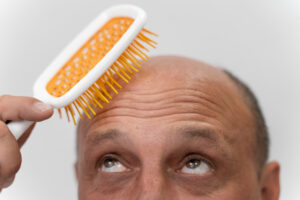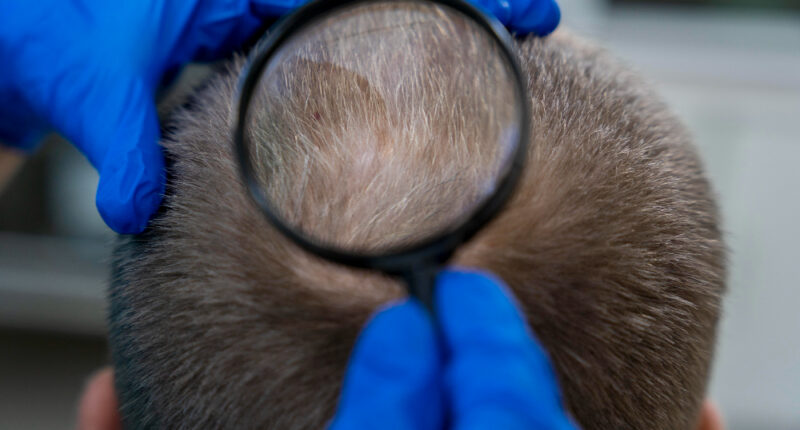Millions of people worldwide worry about hair loss, a common issue that impacts so many of us. Losing your hair can be distressing, whether it’s due to genetics, stress, or other factors. Fortunately, several strategies and treatments are available to help manage and even reverse hair loss. Here’s a comprehensive guide on what to do if you’re experiencing hair loss.
Understanding Hair Loss
Dealing with hair loss, also known as alopecia, can be pretty challenging, as it can happen for a variety of reasons. The most common type is androgenetic alopecia, or pattern baldness, which affects both men and women. Various factors, such as hormonal changes, medical conditions, medications, and stress, can all contribute to the issue. Identifying the underlying cause of your hair loss is crucial for determining the appropriate treatment.
Medical Treatments
1. Minoxidil (Rogaine)
Minoxidil is an over-the-counter topical treatment that can be applied to the scalp. This powerful solution accelerates hair growth and minimizes hair loss. It works wonders for those experiencing hereditary hair loss. Regular use is required to maintain results, and improvement may take several months.
2. Finasteride (Propecia)
Finasteride is a prescription oral medication for men with androgenetic alopecia. Stop hair loss in its tracks by targeting the hormone responsible for it. Finasteride can slow hair loss and promote new hair growth, but like minoxidil, results may take a few months, and continuous use is necessary to maintain benefits.
3. Platelet-Rich Plasma (PRP) Therapy
PRP therapy involves injecting platelet-rich plasma into the scalp. Plasma’s growth factors are incredibly effective at stimulating hair follicles and encouraging new hair growth. PRP therapy is a promising option for those with thinning hair, and it typically requires multiple sessions for optimal results.
Lifestyle Changes
1. Healthy Diet
Healthy, vibrant hair starts from within. Fuel your hair with a balanced diet packed with essential vitamins and minerals. Ensure you get enough iron, zinc, vitamin D, and protein, which are crucial for hair growth. Foods like leafy greens, nuts, seeds, fish, and lean meats can support hair health.
2. Stress Management
Stress is a significant contributor to hair loss. Techniques like yoga, meditation, and regular exercise can help reduce stress levels and improve overall well-being. Adequate sleep is also vital for stress management and hair health.
3. Avoid Harsh Hairstyles and Treatments
Certain hairstyles, like tightly pulled ponytails or braids, can result in traction alopecia, leading to hair loss. Avoid using excessive heat and chemical treatments that can damage your hair. Opt for gentle hair care practices and allow your hair to air dry whenever possible.

Natural Remedies
1. Essential Oils
Essential oils like rosemary, peppermint, and lavender have been shown to promote hair growth. Dilute a few drops of essential oil in coconut or jojoba oil and massage into your scalp. Regular scalp massages can also improve blood circulation and stimulate hair follicles.
2. Onion Juice
Applying fresh onion juice to your scalp can benefit hair growth due to its high sulfur content. Sulfur can help boost collagen production, which in turn promotes hair growth. To use onion juice for this purpose, apply the fresh juice to your scalp, leave it on for 15-30 minutes to allow it to work its magic, and then rinse thoroughly. While it might not smell pleasant, many people swear by its effectiveness.
3. Aloe Vera
Aloe vera has soothing and healing properties that work wonders for the scalp. It can reduce dandruff and unblock hair follicles clogged by excess oil. Apply pure aloe vera gel to your scalp and hair a few times weekly for the best results.
When to See a Doctor
If your hair loss is sudden, severe, or accompanied by other symptoms like itching or pain, it’s essential to consult a healthcare professional. They can help diagnose the cause of your hair loss and recommend appropriate treatments. Conditions like thyroid disorders, autoimmune diseases, and scalp infections require medical attention.
Conclusion
Hair loss can be a challenging experience, but with the right approach, you can manage and even reverse it. Consistency and patience are essential when you opt for medical treatments, lifestyle changes, or natural remedies. Discovering the reason behind your hair loss is the crucial first step in finding the right solution. Don’t hesitate to seek professional advice if you’re concerned about your hair loss, and remember, you’re not alone—many people successfully manage hair loss and maintain a healthy, vibrant mane.









